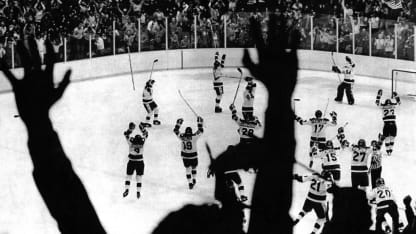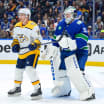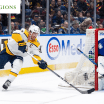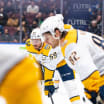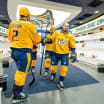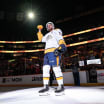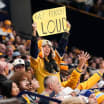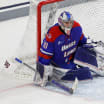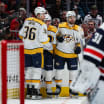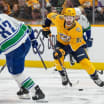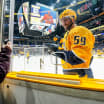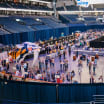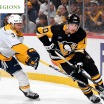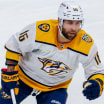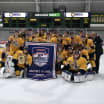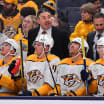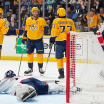First, he had Vladislav Tretiak in goal. As a 20-year-old, Tretiak had shocked the world with his performance against Team Canada in the 1972 Summit Series - the first featuring the Soviets' top players against Canada's professionals.
On defense, they had a group including Slava Fetisov, Alexei Kasatonov and Sergei Starikov, each of whom went on to play for the New Jersey Devils almost 10 years later. On the forward lines, they had Boris Mikhailov, Sergei Makarov, Valeri Kharlamov, and Vladimir Krutov - all immensely gifted.
The United States team, on the other hand, had very little experience. Defenseman Mike Ramsey was only 19, from the University of Minnesota. Center Neal Broten was only 19 and also played for head coach Herb Brooks at Minnesota. Captain Mike Eruzione and Buzz Schneider were the "elders" of the team at 24.
Broten went on to play more than 1,000 NHL games and won a Stanley Cup in New Jersey. Dave Christian, switched from forward to defense by Brooks, scored 340 goals in the NHL. Ramsey played more than 1,000 games as well. "Magic" Mark Johnson played more than 600 NHL games. Defenseman Ken Morrow had the greatest year - winning Olympic Gold and the Stanley Cup - with the New York Islanders in 1980.
A big part of the team's success was goaltender Jim Craig, and he played for the Atlanta Flames, Boston Bruins and Minnesota North Stars.
Factor in the Soviet Union's 10-3 exhibition game victory over Team USA at Madison Square Garden before everything got underway in Lake Placid - and it was clear it was a definite underdog to the original "Big Red Machine."
During the 1979-80 hockey season, I was in my second year with the Los Angeles Kings, and we had the chance to see the Olympians on a trip to Minnesota. They did not impress in a 5-3 loss to the Central Hockey League's Fort Worth Texans on Jan. 25 at the home of the North Stars, the Metropolitan Sports Center. They played a schedule of 61 games against various national teams, along with college teams, minor league clubs and NHL squads.
When big things happen, we tend to remember where we were at the time. My teacher pulled me out of class to tell me that President Kennedy had been assassinated in Dallas, for example. On Feb. 22, 1980, I was in Seattle, calling a Pepperdine basketball game against Seattle University back to Los Angeles on KCOP. Believe me, I don't think anyone in Los Angeles was watching that game, as Jim Harrick's Wave went for its 13th win of the season at KeyArena.
I was unable to watch with the rest of the country as Michaels and Ken Dryden called perhaps the biggest upset of all time. An upset no one saw coming, believe me, perhaps with the exception of Team USA itself. It was a night off for the Kings. Two nights earlier, they had shut out the Boston Bruins. On Sunday the 23rd, make no mistake about it, I was up to watch the 8 a.m. PT faceoff against Finland that won the Gold Medal, and I will never forget how proud I was. But for the (tape-delayed) Miracle itself? I was at a basketball game!
